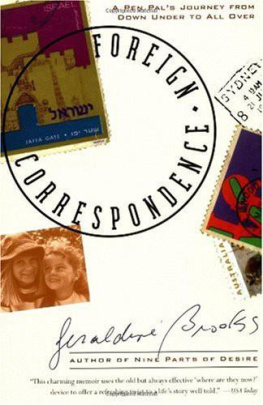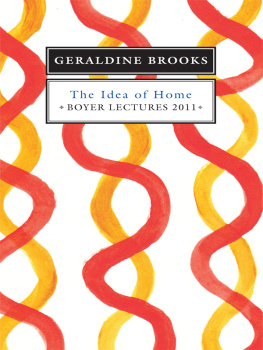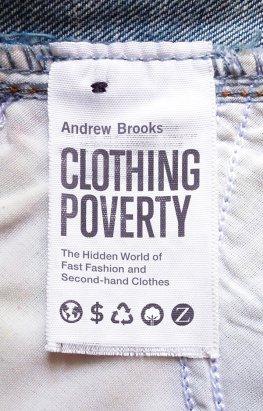Geraldine Brooks - Nine Parts of Desire: The Hidden World of Islamic Women
Here you can read online Geraldine Brooks - Nine Parts of Desire: The Hidden World of Islamic Women full text of the book (entire story) in english for free. Download pdf and epub, get meaning, cover and reviews about this ebook. year: 1995, publisher: Anchor Books, genre: Art / Prose. Description of the work, (preface) as well as reviews are available. Best literature library LitArk.com created for fans of good reading and offers a wide selection of genres:
Romance novel
Science fiction
Adventure
Detective
Science
History
Home and family
Prose
Art
Politics
Computer
Non-fiction
Religion
Business
Children
Humor
Choose a favorite category and find really read worthwhile books. Enjoy immersion in the world of imagination, feel the emotions of the characters or learn something new for yourself, make an fascinating discovery.

- Book:Nine Parts of Desire: The Hidden World of Islamic Women
- Author:
- Publisher:Anchor Books
- Genre:
- Year:1995
- Rating:4 / 5
- Favourites:Add to favourites
- Your mark:
- 80
- 1
- 2
- 3
- 4
- 5
Nine Parts of Desire: The Hidden World of Islamic Women: summary, description and annotation
We offer to read an annotation, description, summary or preface (depends on what the author of the book "Nine Parts of Desire: The Hidden World of Islamic Women" wrote himself). If you haven't found the necessary information about the book — write in the comments, we will try to find it.
Nine Parts of Desire: The Hidden World of Islamic Women — read online for free the complete book (whole text) full work
Below is the text of the book, divided by pages. System saving the place of the last page read, allows you to conveniently read the book "Nine Parts of Desire: The Hidden World of Islamic Women" online for free, without having to search again every time where you left off. Put a bookmark, and you can go to the page where you finished reading at any time.
Font size:
Interval:
Bookmark:
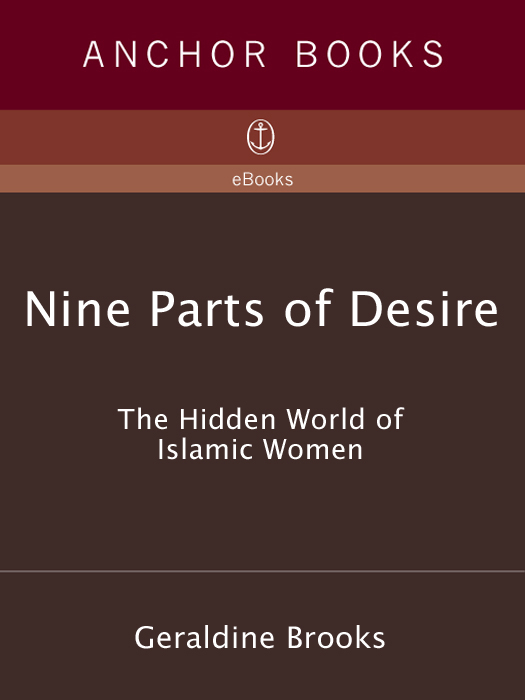
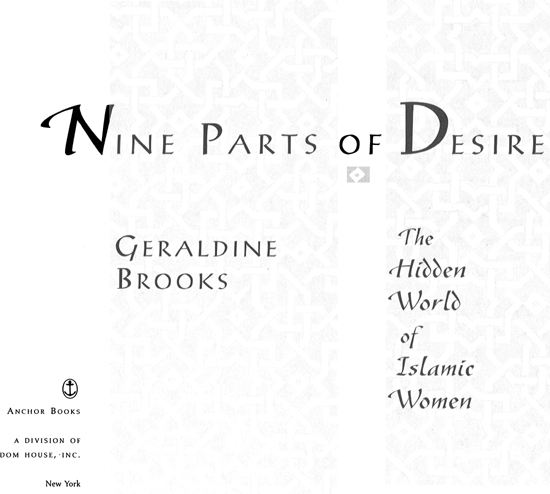
Since there is no standard method of transliteration from Arabic to English, I have followed my own whim, which is to select, wherever possible, the simplest spelling of a word or name that conveys an approximation of its sound in Arabic. The exceptions are names of authors who publish in English translation, in which case I have followed their spelling preference, and for the name of the prophet Muhammad, which I have rendered in the spelling preferred by most Islamic sources.
To Gloria, who convinced her daughters
that they could do anything.
And to Tony, of course.

I would like to thank Lee Lescaze, for his calm voice on the end of so many crackly phone lines; Paul Steiger, for tolerating a leave that lasted too long; Karen House, for having confidence that I could cover the Middle East long before I had; Mary Ellen Barker, John Fitzgerald and Elinor Lander Horwitz for their comments on the manuscript; Melissa Biggs for painstaking fact-checking; Michael Lewis for neighborly advice and inspiration; Deborah Amos, Christiane Amanpour, Nora Boustany, Jacki Lyden and Milton Viorst for good company in war zones; and David Chalfant, agent and champion, without whom this book would not be.
Finally, I would like to thank the many Muslim women who, across so many obstacles, made me welcome in their world.
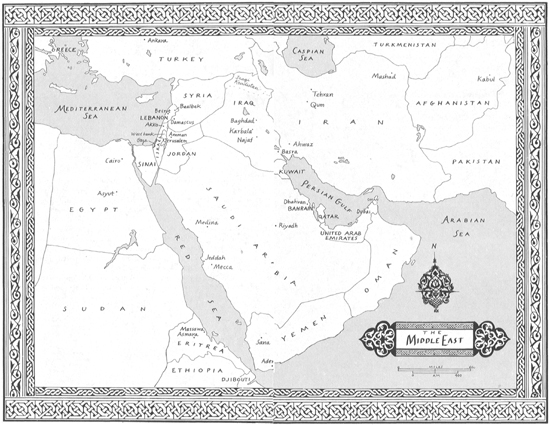
Almighty God created sexual desire in ten parts; then he gave nine parts to women and one to men.
Ali ibn Abu Taleb, husband of Muhammads daughter Fatima and founder of the Shiite sect of Islam
Say, I fly for refuge unto the Lord of the daybreak, that he may deliver me from the mischief of those things which he hath created.
T HE K ORAN
THE CHAPTER OF THE DAYBREAK
The hotel receptionist held my reservation card in his hand. Mr. Geraldine Brooks, he read. But you are a woman.
Yes, I agreed, that was so.
Im sorry, but our reservation clerk has made a mistake.
Thats okay, I said. Just add an s and make it Mrs.
No, he said. You dont understand. I cant give you a room. Its against the law for women.
I glanced around the hotels gleaming lobby. What about them? I said, nodding my head in the direction of two black-cloaked Saudis heading for the elevator.
They are here with their husband, the receptionist explained. In Saudi Arabia a lady does not travel alone. There is no reason for it. Unless she is a prostitute.
There was a timea year, two years earlierwhen I would have lost my temper. Now I just sighed and walked away from the desk. It was after 11 P.M. I knew no one in the city of Dhahran. I could take a taxi back to the airport and wait out the night on one of its plastic chairs. But at the hotel entrance there were no taxis. The plush sofas of the empty hotel lobby looked inviting enough. I made myself comfortable behind a potted plant and pulled my black chador out of my bag to use as a blanket. I was closing my eyes when the receptionist coughed behind me.
You cannot stay here.
I quietly pointed out that I had nowhere else to go.
Then, he said, I have to call the police.
The Dhahran police station had the same hard benches and harsh lights as police stations everywhere. The only difference was that the plain-clothes detectives wore long white thobes. Whenever Id been in police stations before, it had been to report on crime. This was my first visit as a criminal.
Behind a desk across the room a young police lieutenant shuffled my identity documents. I had press credentials from Australia, Britain, Egypt, Iran, Iraq, Jordan, the United States and Yemen. I had passes to Arab summit meetings and presidential palaces. I even had a plastic press badge issued by Saudi Arabias own Information Ministry. The lieutenant peered at them all. First he lined them up vertically, then horizontally. Then he stacked them in a neat pile, as if to evaluate them by height.
Finally he looked up, letting his gaze rest on a patch of wall just above my head. Like most very strict Muslims, he didnt want to risk polluting himself by gazing at a strange woman. When he spoke, he addressed me in the third person. I think the lady hasnt been in Saudi Arabia very long. She doesnt know our customs. He resumed his tedious perusal of my documents. Plucking one of my passes from the pile, he dangled it between his thumb and forefinger. This one, he said with a tiny triumphant smile, expired yesterday.
Sometime in the wee hours of the morning the lieutenant handed back my documents, adding a permit allowing me to spend the next few hours in a hotel. Back at the front desk, the receptionist summoned a bellman, a Filipino, to show me to my room. It was on a completely empty floor. An armed guard hovered by the elevator.
They must think Im dangerous, I muttered. The bellman didnt smile.
They think all women are dangerous, he replied, dropping my bag just inside the door and retreating under the guards watchful gaze.
I lay on the bed, staring at the decal glued to the mirror, showing Muslims the direction that they should face to pray. Nearly every hotel room I had stayed in during the past three years had had a similar arrowstuck on the night table, pinned to a curtain, fixed to the ceiling. It was just a few minutes before dawn. I walked to the window and waited. As a pale disc of light crept up over a hazy blue horizon, the stillness shattered, as it did every dawn, and had done for the last thirteen hundred years.
Come to prayer! wailed the muezzins of the citys hundreds of mosques. It is better to pray than sleep! As the sun edged its way westward, a billion Muslims would do as the citizens of Dhahran were doing at that moment: rise from their beds and bow toward the town of Mecca, about seven hundred miles west of my hotel room.
The reason for my sleepless night lay in that desert town. I couldnt check myself into a Saudi hotel room in the 1990s because thirteen hundred years earlier a Meccan named Muhammad had trouble with his wives.
Islams prophet loved women. He married his first wife when he was twenty-five years old. Illiterate, orphaned and poor, he hardly expected to receive a proposal from his boss, Khadija, a rich Meccan businesswoman at least ten years his senior who hired him as a manager for her international trading company. While it wasnt typical for women to propose to men in Meccan culture, Khadija was among those with the clout to do so. She gave him money, status and four daughtershis only children to survive infancy. The Ayatollah Ruhollah Khomeini, King Hussein of Jordan and the thousands of sheiks and mullahs who today wear the black turban that signifies descent from the prophet all trace their lineage to one of those daughters.
It was to Khadija that Muhammad crawled, trembling, the first time he heard the voice of the angel Gabriel pronouncing the word of God. Despairing for his sanity, Muhammad found himself repeating the first words of the Koranwhich means simply recitation. Then he made his way to his wife on his hands and knees and flung himself across her lap. Cover me! Cover me! he cried, begging her to shield him from the angel. Khadija reassured him that he was sane, encouraged him to trust his vision and became the first convert to the new religion, whose name, Islam, means the submission.
Font size:
Interval:
Bookmark:
Similar books «Nine Parts of Desire: The Hidden World of Islamic Women»
Look at similar books to Nine Parts of Desire: The Hidden World of Islamic Women. We have selected literature similar in name and meaning in the hope of providing readers with more options to find new, interesting, not yet read works.
Discussion, reviews of the book Nine Parts of Desire: The Hidden World of Islamic Women and just readers' own opinions. Leave your comments, write what you think about the work, its meaning or the main characters. Specify what exactly you liked and what you didn't like, and why you think so.


